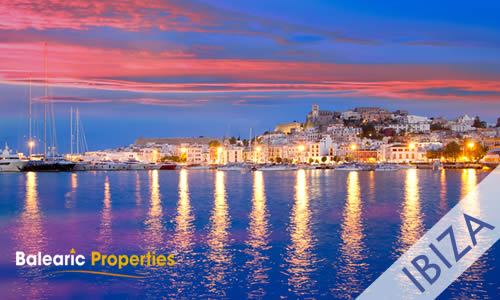In the 1950s, Ibiza was an isolated backwater. Home to one of the most archaic communities in Europe, this hassle-free island with barely any traffic was a world away from the place we know today. Things changed during the 1960s with the arrival of the hippies, attracted by this unique environment and the unspoilt beaches. The full-moon parties held at remote fincas around the island now have mythical status. Many of the participants are still there.
Today, Ibiza has a population of 117,700, which swells during the summer when 4 million people stream through the airport in search of the ultimate holiday. The island’s popularity means competition for flights is intense, so by taking the time to compare flight prices, a holiday here can be excellent value for money.
But Ibiza isn’t just a holiday destination. Thousands of Brits call it home, and many more own second homes here, attracted by the buoyant buy-to-let market that has the potential for a massive return on investment.
The Appeal of Ibiza
Ibiza is an island of many guises. Known as Eivissa in its native Catalan, today it’s legendary for its riotous nightlife and outrageous, hedonistic nature, earning it the moniker of the World’s Clubbing Capital. Birthplace of the rave, the Party Isle is home to infamous clubs such as Amnesia, Pacha, Space and Cream, who throw open their doors every year to a summer of endless parties.
However, there’s another side to Ibiza. The Ancient Greeks referred to it, and its neighbour Formentera, as Las Islas Pitiusas (Islands of the Pine Trees), and even today half the island is blanketed by pines. Away from the main clubbing resorts, you’ll find a gentle rural charm. This diverse little island also offers magnificent white sandy beaches, hence the name La Isla Blanca (The White Isle), and its unique cultural heritage and important wetlands saw it achieve World Heritage status in 1999.
This tiny island offers something for everyone, with the northern and central regions full of charm, tradition and superb countryside, and the southern region a cosmopolitan melting pot of socialising, shopping and fine dining.
Buying Property in Ibiza
The first things to consider when buying property in Ibiza are your desired location, the type of property you’d like, and your budget. Unsurprisingly, property prices here are higher than on the Spanish mainland, though you can find bargains by moving away from the main tourist hotspots.
Many Brits are attracted to the area of Sant Josep de sa Talaia, which is around 15km from the main buzz of Ibiza Town, and a quieter area with some beautiful beaches, national parks and forests nearby, excellent for wildlife with lots of activities for the whole family.
Many Brits are attracted to the area of Sant Josep de sa Talaia, which is around 15km from the main buzz of Ibiza Town, and a quieter area with some beautiful beaches, national parks and forests nearby, excellent for wildlife with lots of activities for the whole family.
Legal Advice
Most estate agents, Immobiliarias, are multi-lingual, but ensure yours is professional and knowledgeable as they’re only lightly regulated. Once you’ve found your dream Ibizan property, you need to appoint a lawyer, Abogado, to make an offer on your behalf. It’s worth finding your own independent lawyer, rather than accept one offered by your agents, in case a conflict of interest occurs. Ensure they’re registered with the Bar Association, Colegio de Abogados.
All foreigners have to obtain a NIE – a unique reference number – before they can purchase their property. You can do this via your local police station or ask your lawyer to arrange it on your behalf.
Once your offer is accepted, you’ll sign a contract and pay a 10% deposit. After relevant checks are complete, you’ll sign the Public Deeds in front of a Notary, then receive the keys. Finally, you must pay stamp tax duty and purchase taxes within thirty days of signing the deeds. They’re usually higher than in the UK and can vary for different properties.
Finally, if you intend to supplement your income by renting your property, note you may need a holiday rental licence before you can begin marketing your property, and you must declare all rental income to the local government.

